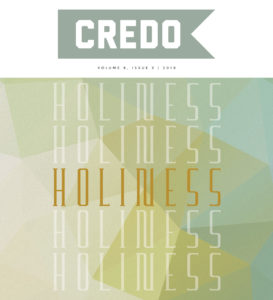Sometimes it feels as if pastors fail morally more frequently than normal Christians. Just this last month, we heard about two more internationally-recognized pastors who brought shame on the name of God and his church through sexual sin. They join a rapidly mushrooming cadre of men who were once privileged to proclaim the unsearchable mysteries of Christ, but are now consigned to the heap of those branded “disqualified.” After a while, even the most optimistic among us can become cynical, wondering, “Who’s going to fall next?”
In light of such a pandemic, one would think that Christians in general, and pastors in particular, would be exceedingly concerned with Paul’s admonition in 1 Timothy 4:16, “Watch your life and doctrine closely. Persevere in them, because if you do, you will save both yourself and your hearers” (NIV). However, in recent discussions of fallen pastors, this verse is curiously absent. I don’t think anybody could claim it has been emphasized. But might that be part of the underlying problem?
In this essay, I intend to reflect on what Paul meant by the term doctrine in 1 Timothy 4:16, and why properly defining this single word is vital for pastoral ministry. I’ll conclude with some brief suggestions for more fully obeying this command. I write as a pastor primarily to other pastors (and prospective pastors) in the hopes of somehow preventing other ministers of the Word from disqualifying themselves.
Defining Doctrine
We should begin by reflecting on what Paul means by the term “doctrine.” When most Christians today hear the term doctrine, they think of truth statements about the character of God, the nature of Scripture, the person and work of Christ, and so forth, designed to be affirmed or denied. They may think of something such as the venerable New Hampshire Baptist Confession of Faith of 1833. With this understanding of the term doctrine, many assume that if a man is able to heartily affirm an orthodox confession of faith, he is watching his doctrine closely. And consequently, if an otherwise orthodox pastor fails morally, it obviously had nothing to do with his doctrine.
While in no way denying the importance of formal doctrinal statements, I’m fairly convinced that Paul intends vastly more than this when he charges pastors to carefully watch their doctrine. While watching one’s doctrine cannot include less than confessing an orthodox confession, it must include far, far more than merely that.
This conclusion is obvious from how Paul uses the term “doctrine” (διδασκαλίᾳ; often translated “teaching”) throughout the Pastoral Epistles. For Paul, Christian doctrine isn’t merely to be affirmed or denied, but it somehow produces godliness (1 Tim. 6:3). Doctrine is paralleled with the “name of God” such that to revile the one is to revile the other (1 Tim. 6:1). Our flesh is naturally repelled by true doctrine and attracted to the false (2 Tim. 4:3ff.). Properly teaching and embracing Christian doctrine results in the Word of God being protected from unbelieving slander (Titus 2:5), skeptics becoming ashamed of their skepticism (Titus 2:8), and non-Christians being attracted to the gospel (Titus 2:10). Perhaps most vitally, being careless with doctrine may result in the damnation of not only the pastor’s congregation but the pastor himself (1 Tim 4:16b)! Being careless with doctrine may result in the damnation of not only the pastor’s congregation but the pastor himself (1 Tim 4:16b). Share on X
When we consider the passages wherein Paul enumerates “sound doctrine” or “healthy doctrine,” we discover something surprising. Instead of listing off truth statements to be affirmed, Paul almost universally emphasizes practical godliness. Behaviors such as sexual immorality, homosexuality, and deception are all doctrinal failures (1 Tim. 1:10). When employees work with integrity and respect their bosses, they are exalting Christian doctrine (1 Tim 6:1; Titus 2:10). And immediately after commanding Titus to teach “sound doctrine,” Paul doesn’t proceed to list off anything resembling a doctrinal statement (what we would likely associate with the idea of teaching sound doctrine), but what is commonly known as a household-code, directions for how older men, older women, younger women, younger men, and servants should function within society (Titus 2:1–10). Perhaps this is why Paul warns in Titus 1:11 that bad doctrine destroys families.
So based on this limited (though I believe fair) examination of Paul’s usage of doctrine in the Pastorals, I’d contend it’s time for us to adopt a definition of doctrine far broader than merely an orthodox statement of faith. For Paul, doctrine certainly includes truth affirmations about God, Scripture, Jesus, etc. (e.g., 1 Cor. 15:1ff; 1 Tim 3:16; etc.), but it is far more comprehensive, holistic, and life-transforming than we tend to assume. Doctrine is the entire Christian world-and-life-view; it is the entirety of the gospel message both in its cognitive content and practical implications for personal, family, church, and social life; it is taking up the cross in all its fullness; in a word, doctrine is learning to obey everything Jesus has commanded us (Matt. 28:20). I often wonder if Paul could have said, “Watch your life by watching your doctrine closely.”
What this means practically is that all those pastors who failed morally, somewhere along the way previously failed to watch their doctrine closely. Even if they could still sign the Westminster Confession of Faith (or the like) with hearty agreement, if they strayed into sexual sin they succumbed to false doctrine (which is a significant part of why they are no longer qualified to be the doctrinal teachers of the church). And for you, my reader, if you love staying up late at night reading Grudem, Bavinck, or Turretin, but your wife thinks you’re a jerk, your children don’t think you have time for them, your employer considers you to be lazy, or your church members believe you can’t stand them, you’re fooling yourself. You’re doctrinally aberrant, regardless of how many truth claims you affirm. And you’re certainly not qualified to be a pastor.
Watching One’s Doctrine
So in conclusion, how might we remedy this situation, beyond just properly defining the term doctrine? Answering that question would require an entire article or book in itself. (And if you’re seeking manuals for doing what I’m suggesting in this article, check out Charles Bridges’ The Christian Ministry and Spurgeon’s Lectures to My Students.) Just as the term doctrine is comprehensive, so also watching one’s doctrine is a comprehensive activity engaging one’s devotional practices, worldview, friendships, family life, financial habits, entertainment choices, submission to authority, and, perhaps most importantly, local church involvement.
But if I could make just one humble suggestion for watching one’s doctrine closely, I’d recommend all pastors spend considerable time reading the original writings of the 16th-century Reformers. It always struck me as interesting that both Calvin’s Institutes and Bullinger’s Decades included chapters on prayer. The Reformers, far better than nearly all ministry professionals today, understood the organic, symbiotic relationship between life and doctrine, between belief and behavior, between confession and godliness.
If I could make a specific prescription, if you’ve never read the Reformers, start with Martin Luther’s Galatians Commentary (and specifically this edition). Luther will move seamlessly from expounding justification by faith alone to explaining how one must live with a cranky spouse to what obeying an unfair boss looks like and back again. Immersing yourself in this commentary (and others like it), will go a long way toward renewing your mind in understanding the comprehensive, life-transforming nature of Christian doctrine. In the long-run, you and your congregation will only be the better for it.
In a world where pastors are falling like dominoes, may God give us grace to watch our lives and doctrine closely, in all of the comprehensive theological and practical significance that Paul intended. As we do so, not only will we save both ourselves and our hearers, but that will be the means the Spirit of God will use to “keep you from stumbling and to present you before his glorious presence without fault and with great joy” (Jude 24; NIV).


